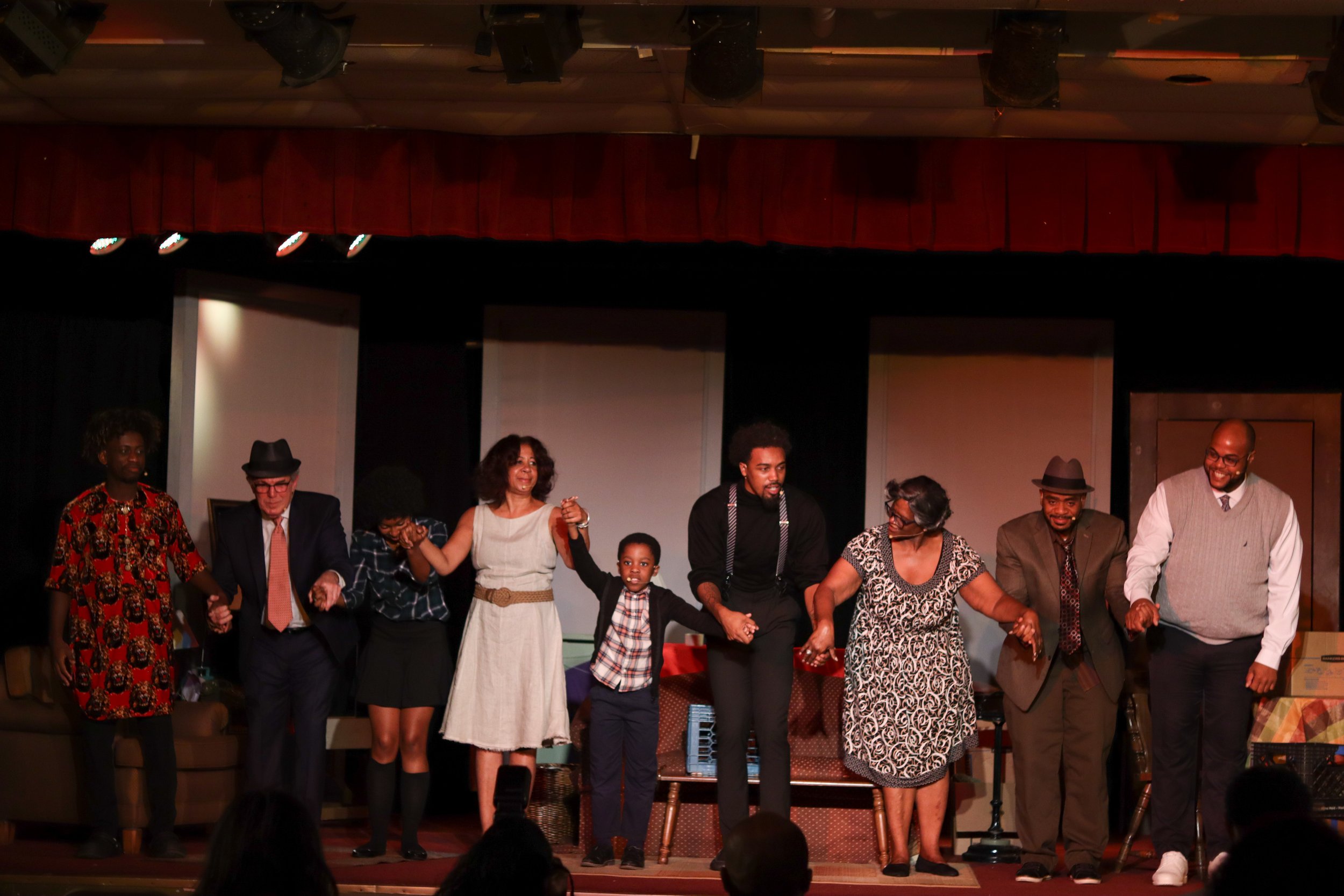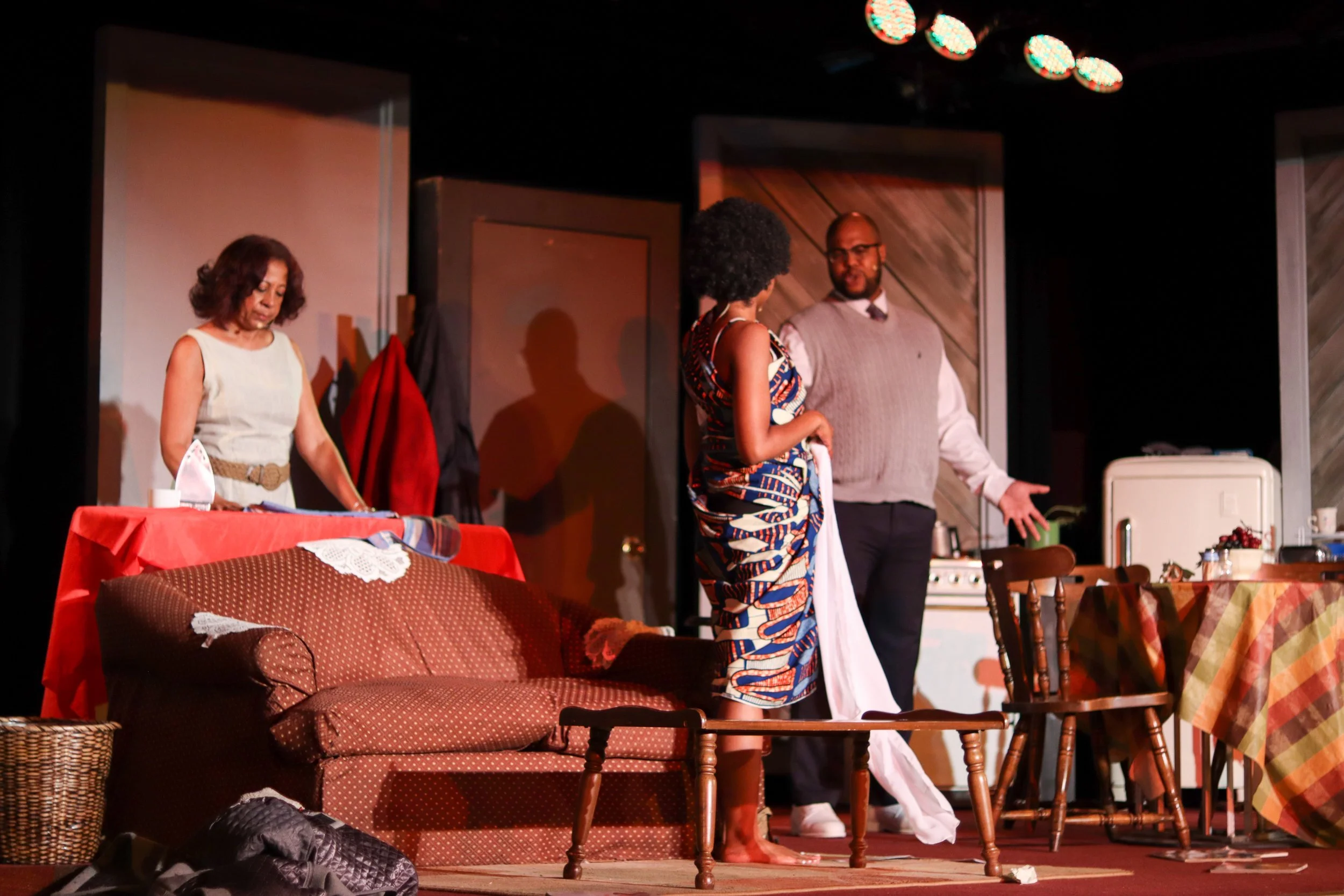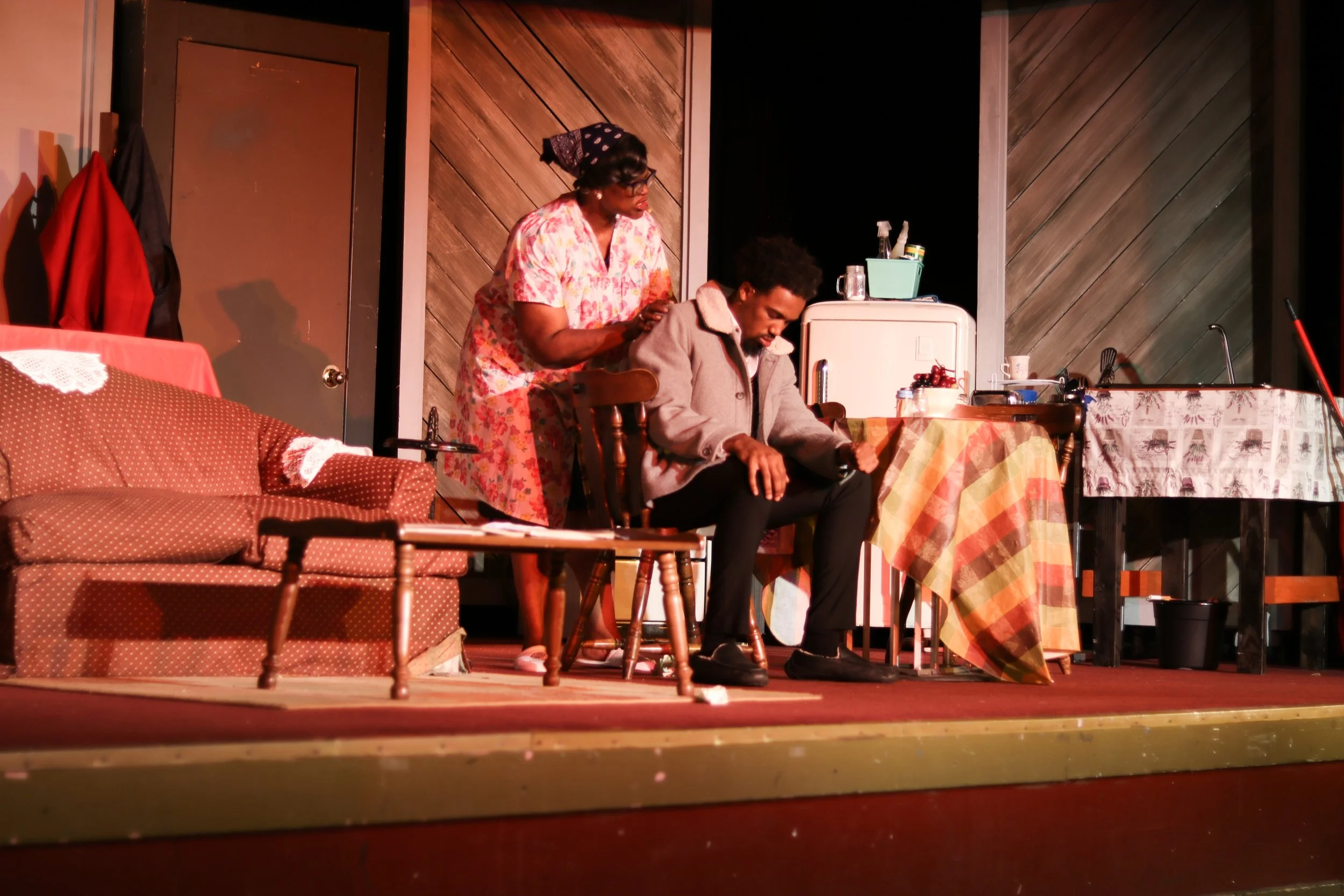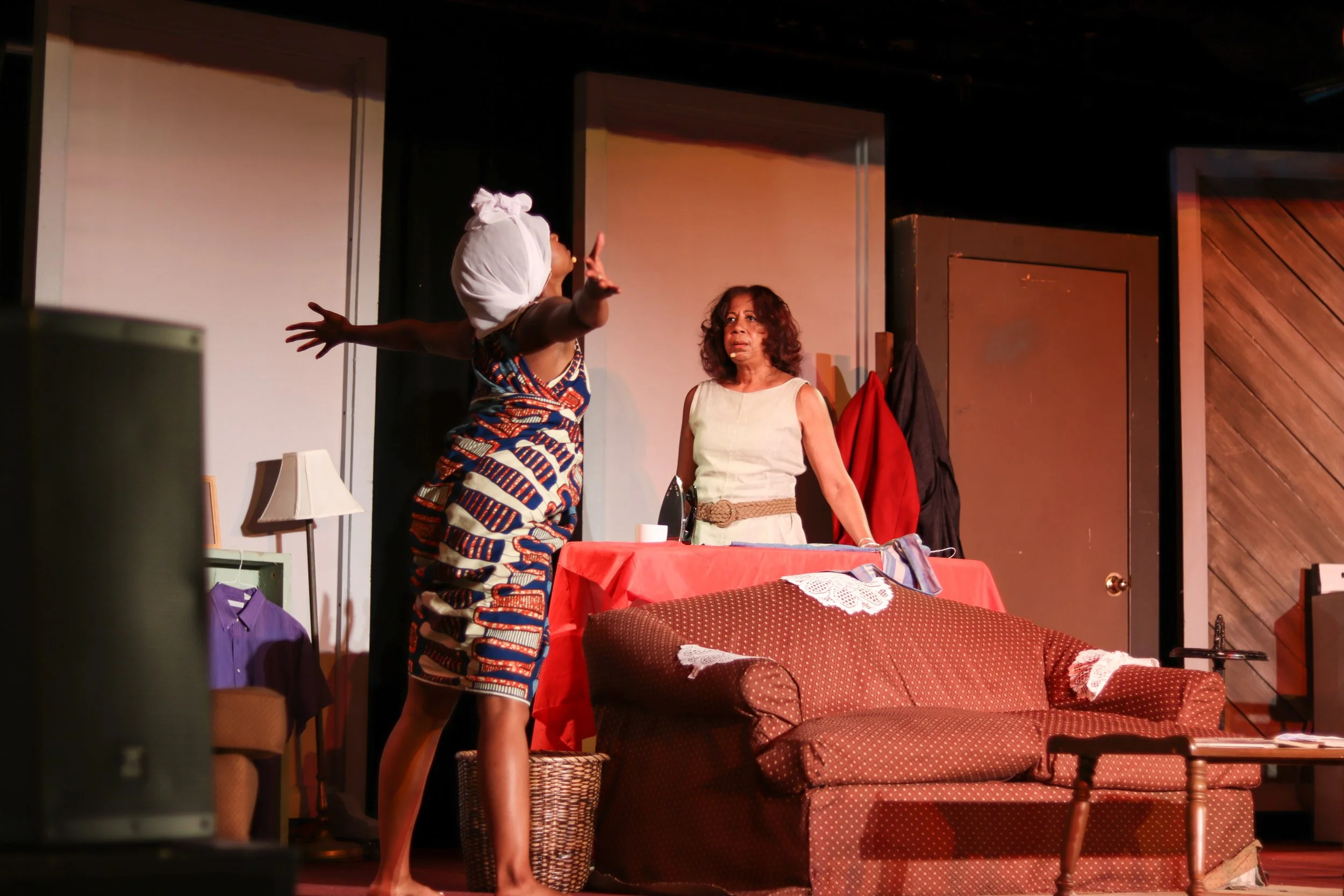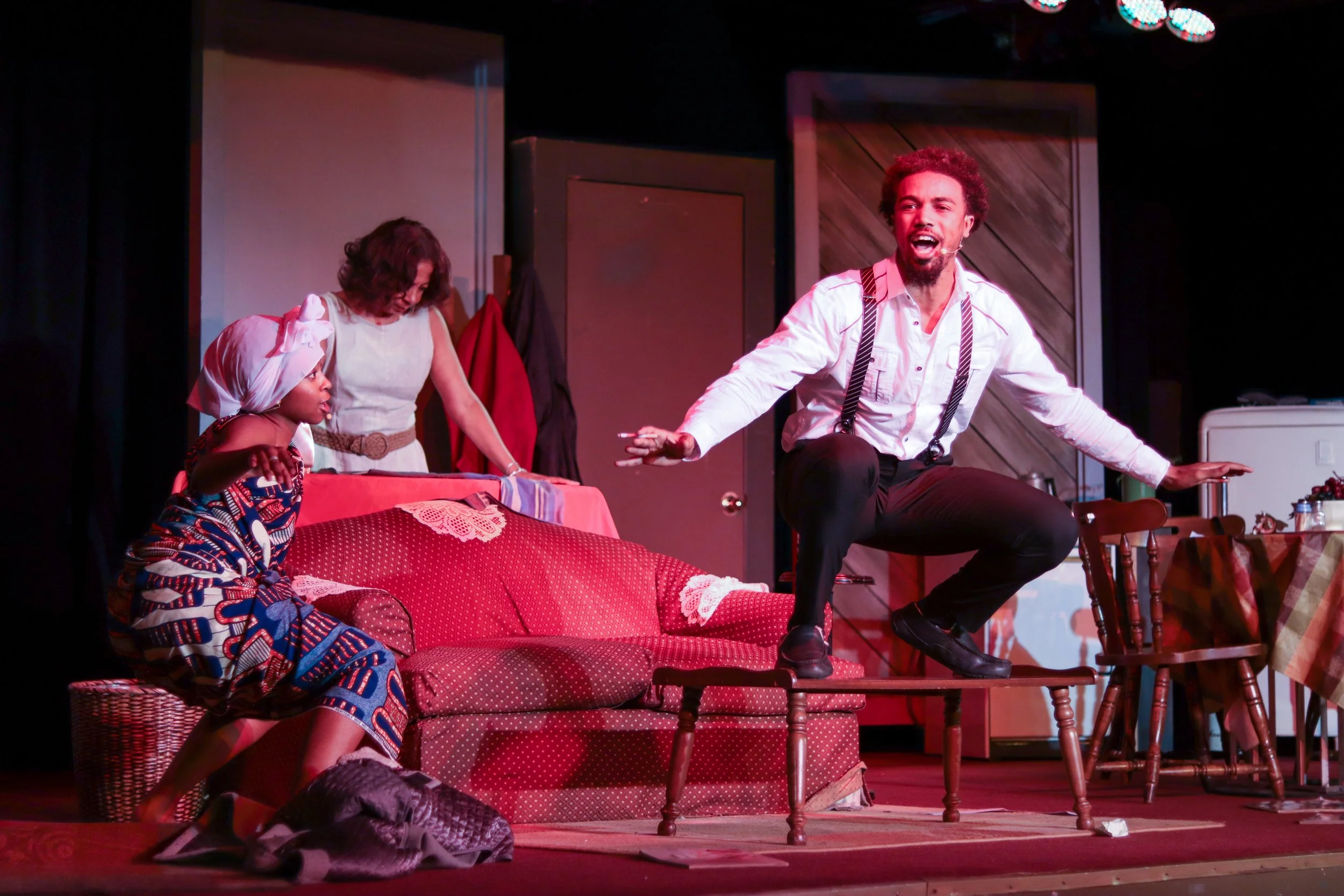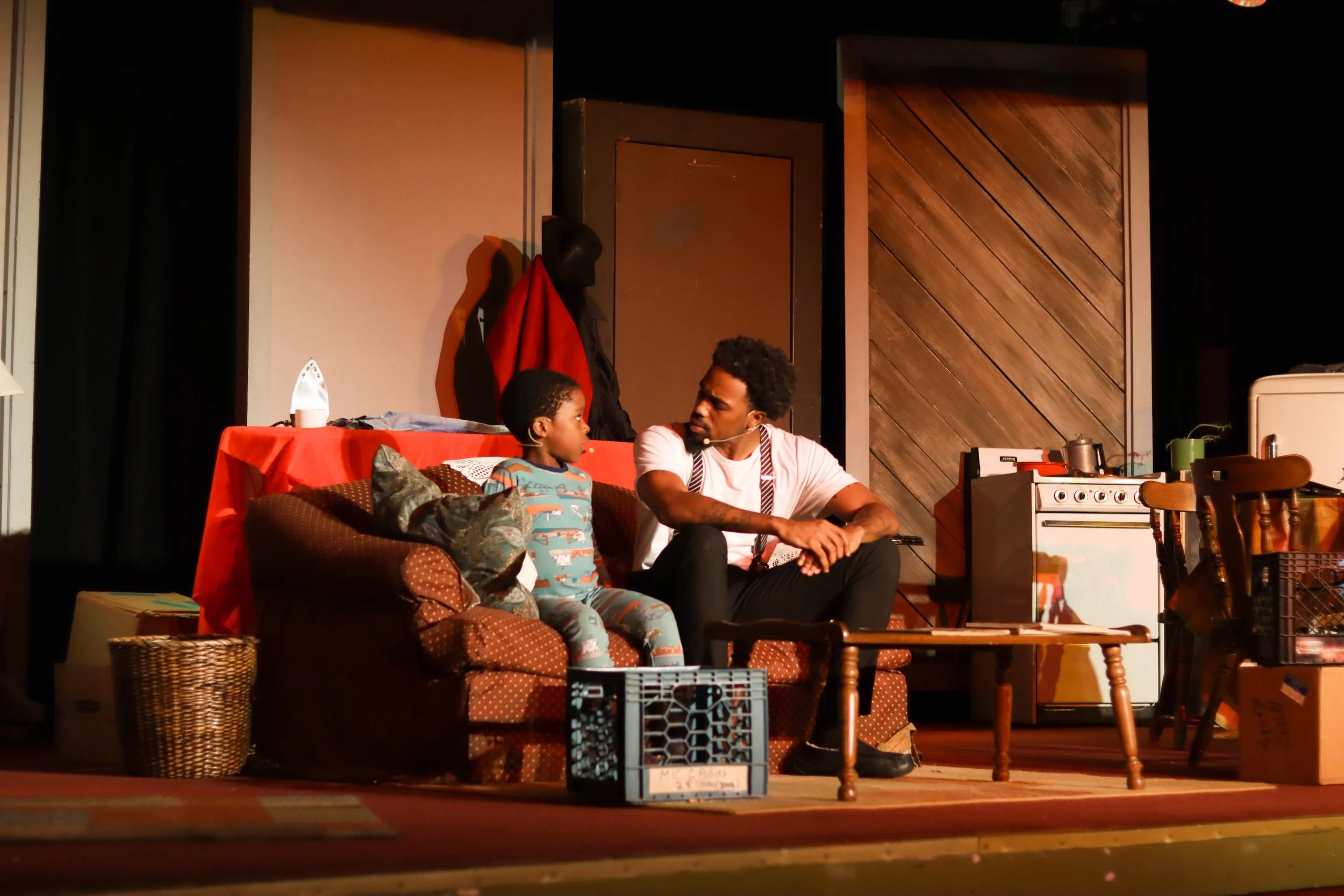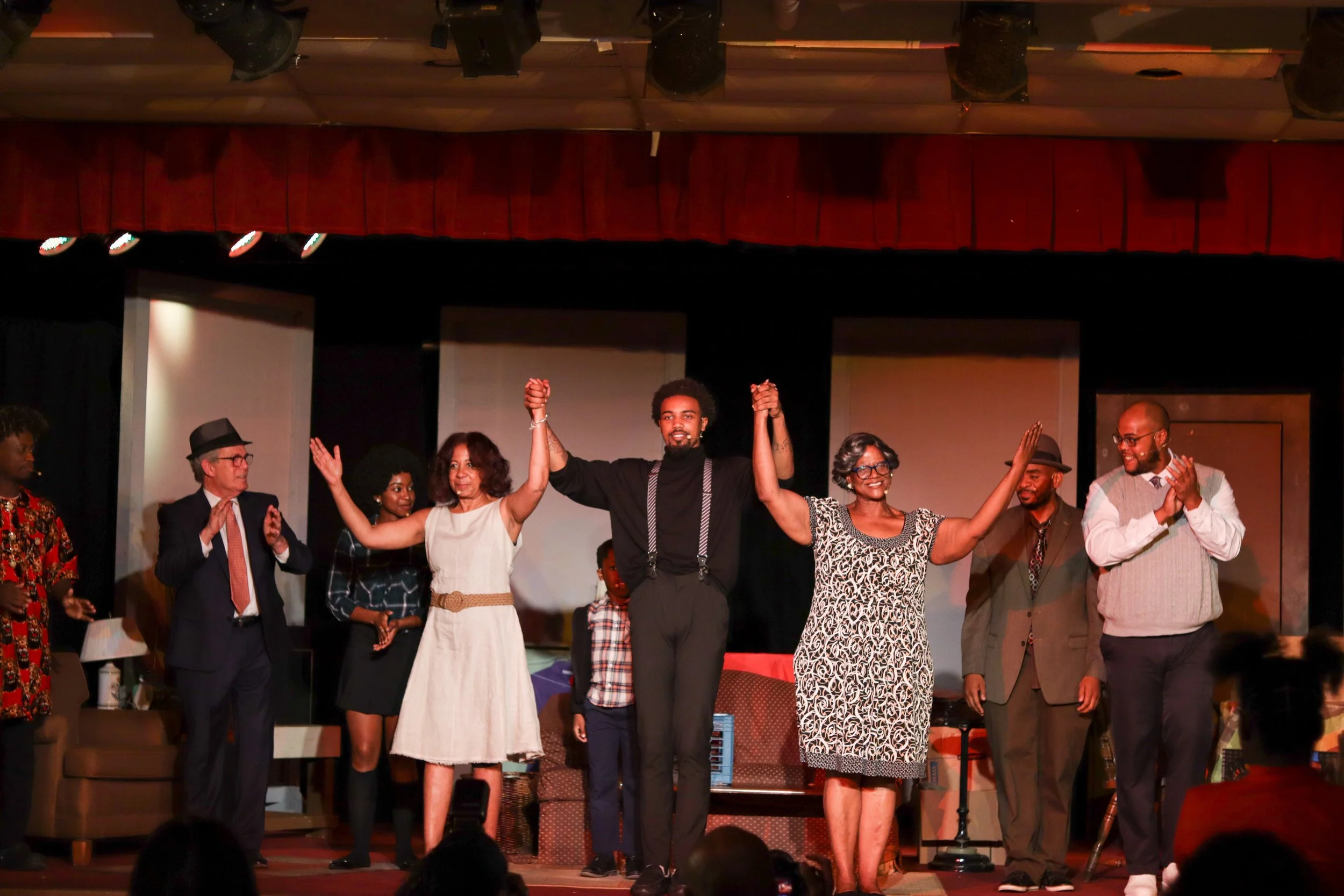Play Review| A Raisin in the Sun
The cast of A Raisin in the Sun take a bow at the end of the play at Newark’s Symphony Hall, Sept. 17, 2022. (Esther Paul for Public Square Amplified)
NEWARK, NJ—You can’t watch Kenya Moncur-Whitaker’s portrayal of Walter Lee Younger in a recent production of A Raisin in the Sun and not feel something. Sitting in the audience and hearing his vision of a bright future for his son – a future filled with hope and abundant resources–connects with any parent or person who has faced the same circumstances. The rare insight into his parental abilities makes you think of the many dreams you’ve had–the ones you’ve accomplished, the ones you’ve lost, those deferred.
A Raisin in the Sun, written by Lorraine Hansberry, was first performed in 1959 at the Ethel Barrymore Theatre. The scene is set during the Civil Rights era and inspired by Hansberry’s life growing up in the segregated South Side of Chicago. Over the years it has played out on screen, on television, and numerous times on stage.
But recently at Symphony Hall in Newark, the play took on a more local vibe. Sixty-three years since its debut, the story continues to resonate, touching on contemporary themes of segregation, poverty, racism, aspirations, and the struggle for a better life. It centers on the Youngers, a Black family crammed into a small apartment in the South Side of Chicago and dealing with the effects of racial prejudice on their dreams. The production was perfect for the Newark Symphony Hall stage, the historic building where African American artists were not permitted to perform until 1940 —15 years after it was built.
In the new production, the performers were mostly newcomers, most of them staff members at Rutgers University’s Newark campus
Donita Devance’s command of the stage in her role as Lena Younger was captivating. She emanated the essence of a mother. The audience, who gave her a standing ovation, seemed shocked to learn it was her first time on stage.
Darlene Brown did a fine job of portraying Walter Lee’s quiet and graceful wife, Ruth. Isaiah Odumuko, who played Travis, was impressive and amusing for his age. Products of New Jersey Performing Arts Center’s (NJPAC) theatre workshop, Jocelyn Creekmur, who played Beneatha Younger, and Jai Surles, who played Joseph Asagai, brought comic relief and did a good job in trying to connect the African American community to their history and heritage. Along with other supporting actors—Rajan Hollis, as Bo Bo, Kevin Cenac, as George, and Terry Shapiro in the role of Karl Lindner—the cast put on a riveting performance which resulted in a great production.
The play was produced by Marcia Brown, the former Vice Chancellor for Government Affairs at Rutgers-Newark. A collaboration between Rutgers-Newark and Dare To Fly Productions, proceeds from the play will go to support a Raisin Student Scholarship fund. Brown, who majored in broadcasting and theater in the 1970s, said she had always dreamed of putting on the play. She first produced it in 1979 but she said this time was different because of the new actors and the accessibility of the production.
“(This time) we could offer tickets at really minimal price for non-traditional theatre goers–people who don’t typically go to Broadway, who don’t pay or can’t afford to pay to see a play, even if it’s about their lives,” she said.
Marcia Brown smiles for the camera at Newark’s Symphony Hall, Sept. 17 2022. (Brian Branch-Price for Public Square Amplified)
The way that Hansberry brilliantly weaves together the themes that were pertinent in 1979 —and are still today–equality, feminism, gender issues, classism and pan Africanism – make it relatable to many, Brown said.
“It’s a play that people, especially in Newark can see their own lives mirrored in the way that these people struggled with each other but yet still were able to maintain love,” Brown said. “This personally appealed to me but politically it was a reflection of all the things I’ve spent my life working on.”
Brown said there is interest in bringing the production to stages outside of Newark, but after 14 weeks of putting it together at Symphony Hall, she needs to live life her normal life for a while. Producing plays is her passion, however, and she sees other productions in her future. A venture she’d love to be part of is a permanent repertory theatre company in Newark that would allow for people to see classic tales, stage new playwrights, and teach what it means to work backstage.
If Brown’s production of ‘A Raisin in the Sun’ is any indication, such a company would be as well received as the play. It was a worthwhile effort.
Correction: A previous version of this article misspelled Donita Devance’s name. It’s been corrected.

